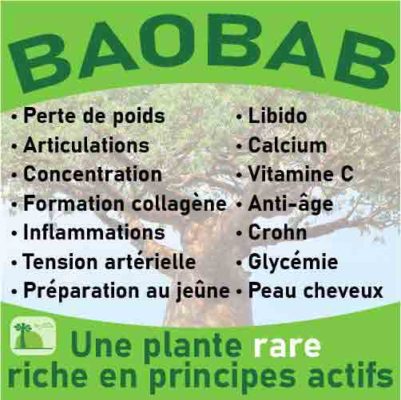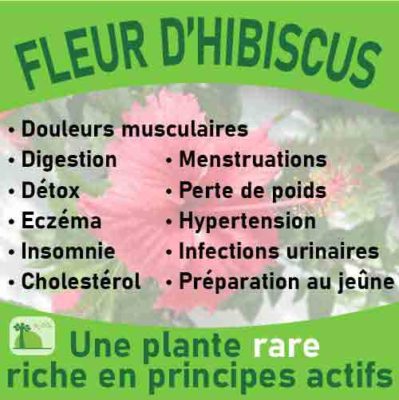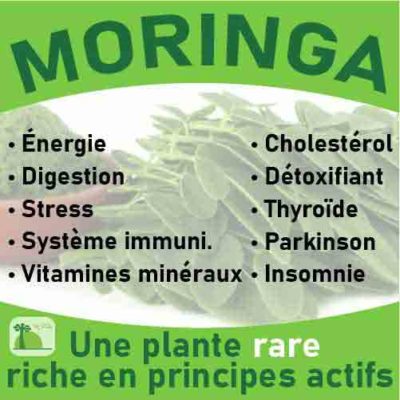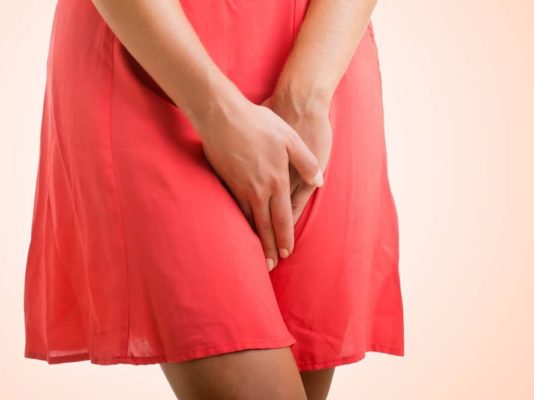


A question that comes up very regularly in the comments, concerns the natural treatment of fungal infections, urinary tract infections without resorting to antibiotics. Here are the health tips from the Biologiquement laboratory.
Hello,
First of all the vaginal flora, what is it? It is a set of microorganisms, bacteria and yeasts, which are established in the vagina. A few hundred million of these physiological germs per milliliter form a protective biofilm on the vaginal mucosa and guarantee local balance. It is in a way an ecosystem that will protect you from infectious and physico-chemical attacks. Lactobacilli in particular have an essential role, allowing the maintenance of normal acidity in the vagina and blocking the proliferation of minority microbes
There are 3 main causes of modification of these protective germs:
The hormonal imbalance, which will modify the vaginal mucosa: menopause, use of progestins, minidose or estrogotative pill (in some cases), diabetes. According to Professor Philippe Judlin, head of the Nancy regional maternity gynecology service, "estrogens play an essential role in obtaining and maintaining the balance of the vaginal flora".
An excess of hygiene (too frequent intimate toilet, internal vaginal douches): the protective lactobacilli are stored in the rectum and will move to the vagina to constitute the major part of the flora. However, the usual antiseptic soaps destroy them and modify the acidity of the vagina!
Taking medication, antibiotics in particular, which makes sense since these medications are intended to destroy certain bacteria.

You should also know that stress and tobacco reduce local vaginal immunity.
The vulvar and vaginal pH is ideally between 4 and 4.7, it can then become more basic and tend towards 5, resulting in an imbalance of the vaginal and vestibular flora (space between the labia minora).
The role of certain clothing practices in genital infections was clarified by the Italian study SOPHY (Study On pH and Hygien). If she confirmed that vaginal yeast infections are more frequent with underwear made of synthetic materials compared to natural materials (25.5% against 15.7%), she also reveals that the first enemy is the panty liner ! Hence a tip: wear it but occasionally. It increases the risk of yeast infections and vaginal infections if worn every day, by nearly 35% versus 25%. SOPHY also confirms that wearing very tight and tight jeans increases, due to friction, the risk of fungal infections. The tights had no negative impact.
Pr Boiteux: “In tight pants, it seems quite logical, without having any experimental evidence, that perspiration and friction accentuate the development and passage of this pathogenic germ from the anus to the vagina. The ideal is to ventilate this region, to wear loose clothing, especially in women prone to recurrent cystitis”.
Whatever the reason for their use, some intimate hygiene products could do more harm than good.This is suggested by a study that shows an increased risk of vaginal infections when using some of these products too frequently.
To conduct this research, scientists interviewed 1,500 Canadian women. They were interested in their habits in terms of vaginal hygiene, the products they use, and the frequency of their vaginal problems.
Most of the products listed were wipes, cleansing gels, anti-itch creams, moisturizers and lubricants.Women using cleansing gels have an eight times higher risk of having a yeast infection, and a 20 times higher risk of developing a bacterial infection.
As incredible as it is, it is possible to find intimate deodorants on the market. Even without alcohol and without perfume, these products are to be avoided because they can, in addition to unbalancing your vaginal flora, trigger irritations, burnings or irritations.
Some pads contain so-called “super-absorbent” gels. These are crystals of sodium polyacrylate (the same ones present in diapers or baby wipes), an absorbent polymer that becomes gel when wet and can absorb up to 800 times its weight in water – we also found in small white sachets which absorb moisture.
The pads are made of a mixture of cotton (grown with a lot of toxic pesticides) and viscose (or rayon in English), a very absorbent artificial material, obtained from the cellulose pulp of trees.
Today's toxic ingredients in tampons and disposable pads include aluminum, alcohols, fragrance additives (particularly irritants) and hydrocarbons, not to mention pesticides. Worse still, some tampon bleaching processes leave dioxin residue behind.
The vaginal wall being very absorbent, the chemical substances that make up these disposable products then have no difficulty in penetrating the body.The problem is that the body does not know how to get rid of them and that it accumulates over time, all these toxins dangerous for health.
Organic periodic protections are now available for women at the time of their periods, opt for organic cotton tampons and towels without chlorine, without chemical additives and in natural materials.
In the vagina, we find what is called a "physiological vaginal flora", the "vaginal microbiota", that is to say a set of "good" bacteria. Their role is to protect the vagina from infections with bad bacteria, but also fungi.
Probiotics have proven benefits on the prevention of recurrences, but also on the reduction of symptoms of mycoses.
The balance of the intestinal bacterial flora is a guarantee of good health. Indeed, the intestinal flora plays three fundamental roles: a nutritional role, a barrier role against pathogenic micro-organisms, a fundamental role in "education" and stimulation of the immune system. Probiotics, living bacteria, beneficial, are part of the intestinal flora once ingested. Prebiotics selectively stimulate the growth and/or biological activity of one or more bacterial species (probiotics)
baobab is an excellent source of prebiotics. Prebiotics “house” probiotic bacteria and stimulate their growth by feeding them.
Prebiotics are substances that improve the internal environment of the intestine. In doing so, they help nourish and maintain the good bacteria already present in the body, and allow the probiotics to act under optimal conditions.
You can take one tablespoon of powder daily for 1 month.
Baobab oil is a natural anti-yeast. It acts both as antifungal and antibacterial. It reduces inflammation and also stimulates the immune system.
Organic baobab oil has many "health" virtues, which allow it - in addition to being nicknamed the bottled pharmacy - to appease several gynecological problems such as vaginal dryness and yeast infection.
Organic baobab oil is a well-known beauty “trick” in the world of cosmetics.It is used as well to boost the hair in small form as to nourish the skin. However, it is not just about that. Gynecologist and phytotherapist Bérengère Arnal explains “Baobab oil is nicknamed the pharmacy in a bottle. Thanks to its high saturated fatty acid content, it is anti-microbial, anti-fungal, anti-colibacillus, anti-streptococcus, anti-staphylococcus, antiseptic, antiviral and even moisturizing”.
You can apply it to the vulva at night before going to bed.
Or use it regularly as a lubricant for your sexual intercourse.
Moringa is a plant that contains many beneficial elements for health. The leaves, especially, are a real treasure for our body.This herb helps lower blood pressure, boost the immune system, improve digestion, reduce inflammation, help lower blood sugar and cholesterol.
The anti-bacterial, anti-inflammatory, and antifungal properties of moringa help fight infections and a lot of illness. The Biologiquement laboratory sells it in the form of powder or capsules, here we recommend moringa leaf powder, it is easy to store and it can be used as a food supplement or simply sprinkled on food.
The intimate toilet must be external: it should never concern the interior of the uterus.
On the outside, at the level of the vulva, your body knows how to defend itself very well. At the level of the skin, it is impermeable to bacteria. At the level of the mucous membrane between the labia minora, the mucous membrane is more fragile, but its moisture is full of antibodies and defenses (bacteria of the flora) intended to defend you.
Prefer hot water to wash the genital area (without soap). Otherwise, use soap-free soaps. Do not try to mask odors with deodorants or perfumed products, these weaken the mucous membranes and cause burning sensations.
Enjoying a salt water bath can also relieve vaginal itching. The salt will control the growth of infection-causing microbes and, in turn, reduce itching and other discomfort.
Preparation method
Add 1 tablespoon of Guérande salt to a glass of baobab leaf tea water and use it to wash your vagina whenever you feel the itch. It will give you instant relief.
Otherwise, fill your bathtub with hot water, baobab leaves and add ½ cup of salt. Sit in the water in a squat position for 10-15 minutes. Repeat 2 or 3 times a day for a few days for best results.
Intimate cleansing with baobab leaves, they are soothing, disinfectant, play a role in intimate hygiene and certain plants promote tightening of the vagina and treat vaginal dryness.Intimate hygiene preserves the vaginal flora. The flora composed of lactobacilli, natural bacteria of the vagina, protects against infections.
Finally, Guinea sorrel (its scientific name Hibiscus sabdariffa, also called Bissap or Roselle) is a herbaceous plant of the Malvaceae family which grows in tropical zones, notably in Guinea where it comes from and then spread throughout the rest of West Africa (Senegal, Burkina Faso, Mauritania, Benin, Togo, Niger, southern Mali, northern Ivory Coast), Botswana, and in the Congo. This plant is also known in Egypt, Sudan, the Central African Republic (called karakandji), Cameroon (called folere) and Mexico where it is called flor de Jamaica. In Martinique and Guadeloupe, it is called Groseille pays (Gwozey peyi in Creole) or simply Groseille as well as in South East Asia.
Karkadé – sometimes spelled “carcadet” -, or bissap, is the drink prepared from the flowers of this red-flowered Hibiscus and the boiled leaves are used for intimate cleansing.
Preparation of the decoction of hibiscus flower and baobab leaf; Boil a few leaves for 20 minutes, let cool, add a little honey, boil and cleanse yourself with the mixture obtained. This wash is reputed to refresh the vagina, tighten the vagina and make it smell pleasant.
The Biologically laboratory team

Bonjour ! Le corossol m’intéresse à condition qu’il ne soit pas constipant ce dont je souffre énormément; Merci pour votre réponse.
Bonjour Michelle, effectivement le problème numéro 1 des femmes avant même les hommes c’est la constipation, ne vous inquiétez pas la feuille de Graviola ne provoque pas on aggrave pas de constipation, bien au contraire elle peut réguler votre transit voici quelques conseils pour vous.
Pour aider votre cliente souffrant de constipation, voici une recommandation en se basant sur les informations du site http://www.baomix.shop et les produits disponibles sur la boutique Biologiquement.
Produits naturels recommandés :
Graines de Moringa : Les graines de moringa sont connues pour leurs propriétés détoxifiantes et peuvent aider à réguler la digestion, en stimulant le transit intestinal.
Baobab : La poudre de baobab est riche en fibres solubles, ce qui aide à améliorer la digestion et à soulager la constipation. Elle aide à rééquilibrer le microbiote intestinal, facilitant un transit plus régulier.
Gélules de corossol : Le corossol possède des propriétés digestives et peut être utilisé en complément pour apaiser les inflammations du système digestif.
Aussi
Baies de Goji :
Les baies de goji, riches en fibres, sont excellentes pour favoriser un bon transit intestinal. Elles aident non seulement à prévenir la constipation, mais aussi à améliorer la digestion en général. De plus, leur teneur élevée en antioxydants contribue à la santé globale du système digestif.
Gélules d’Aloe Vera :
L’aloe vera est bien connu pour ses propriétés digestives. Il agit comme un laxatif doux et naturel, aidant à soulager la constipation. En plus d’apaiser les inflammations, il améliore la digestion en favorisant un bon équilibre intestinal.
Ces deux produits, en complément du moringa, de la poudre de baobab, et des gélules de corossol, fourniront à votre cliente un soutien digestif optimal.
Conseils de vie pour améliorer la constipation :
Hydratation : Encouragez la consommation de beaucoup d’eau, car une hydratation adéquate est essentielle pour favoriser le transit intestinal.
Alimentation riche en fibres : En plus d’utiliser des produits comme la poudre de baobab, elle doit consommer plus de légumes verts, des fruits riches en fibres (comme les pruneaux et les poires), et des céréales complètes.
Exercice physique : L’activité physique, même légère comme la marche, aide à stimuler les intestins et améliore le transit.
Gestion du stress : La constipation peut aussi être liée au stress. La relaxation ou des techniques comme le yoga peuvent être bénéfiques.
Ces recommandations combinent des produits naturels et des changements de mode de vie pour aider votre cliente à retrouver un bon équilibre digestif.
En espérant que nos produits vous apportent entière satisfaction
Amicalement
L’équipe du laboratoire Biologiquement